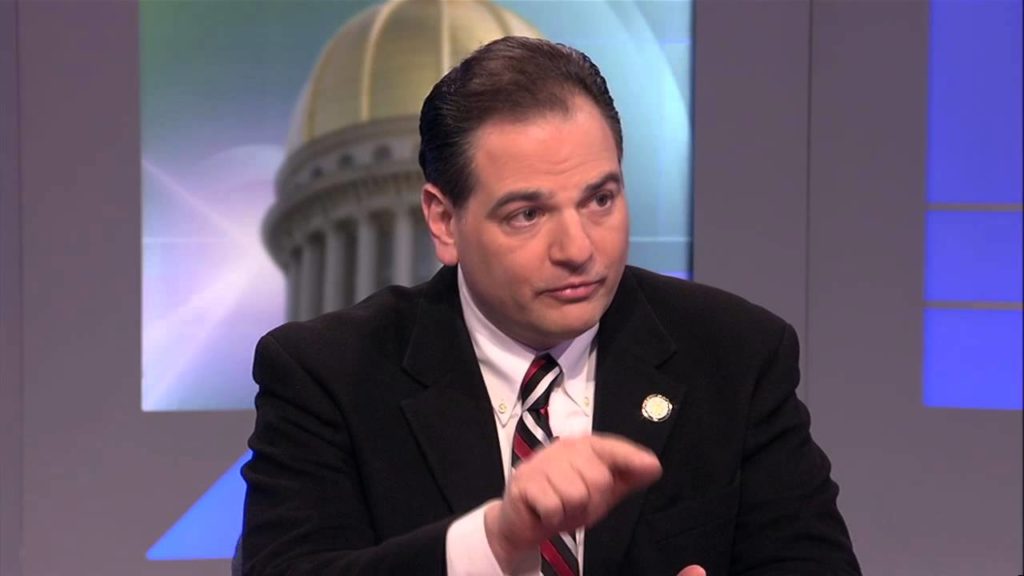MARIJUANA INDUSTRY LOBBYING OF LOCAL OFFICIALS POINTS TO NEED FOR MORE DISCLOSURE

“Emboldened by the failure of New Jersey lawmakers to pass a bill to legalize marijuana, opponents are hitting the measure’s main sponsor where it hurts: his own community.”
That sentence, written by James Nash of the North Jersey Record in an August 24, 2018 story, points to the thus-far successful effort by opponents of legalization to lobby the Linden City Council to ban marijuana business in Linden.
Linden is home to state Senator Nicholas Scutari, a leading advocate for legalizing recreational use of marijuana.
The effort in Linden appears to be part of a lobbying campaign by opponents of marijuana legalization to gain support among New Jersey’s communities for their anti-legalization stance.
More than 30 municipalities have passed ordinances forbidding the sale of marijuana within their jurisdiction. Most likely, substantial lobbying took place to achieve the passage of those ordinances. The problem is no one knows except the lobbyists and their clients.
Under current state law, lobbyists have no legal obligation to disclose their efforts to influence local officials or the amount they earn from such efforts. Current state law requires this disclosure only if state officials are the target of lobbying efforts.
Granted, 30 municipalities is but a small percentage of the 565 municipalities throughout the State. But it has a direct bearing on efforts to enact state legislation and if the number of communities prohibiting the sale of marijuana continues to grow, the effort to legalize and implement becomes more complex.
The public has a right to know what individuals or firms are hiring lobbyists to undertake this effort to influence local law-making and how much they are spending. Just like it does now in regard to the state legislation.
A previous column predicted that the issue to legalize marijuana use in the Garden State would carry with it intense lobbying activity. It noted that 14 groups and individuals had positioned themselves for or against legalization.
Among the groups supporting legalization are the New Jersey Cannabis Industry Association, New Jersey CannaBusiness Association, Drug Policy Alliance, and Compassionate Sciences.
Those opposed include New Jersey Responsible Approaches to Marijuana Policy, Automobile Association of America (AAA), and Insurance Council of New Jersey.
Annual lobbying reports filed with the Election Law Enforcement Commission (ELEC) showed that in 2017 the issue had already generated $250,000 in fees paid to lobbyists in New Jersey for trying to influence state officials.
Based on spending in 2017, it was clear that the push to legalize recreational use of marijuana in 2018 would generate huge spending by special interest lobbyists on both sides of the issue.
What was foreseen at the time was significant spending at the State level of politics. Expenditures likely would be made in the form of issue ads and direct lobbying of legislators. If the issue dragged on into the 2019 legislative election, there might also be an abundance of independent spending as well as direct contributions to legislative candidates.
Overlooked, however, was the potentiality of lobbying activity at the local level of politics.
The fact that opponents of marijuana legalization are lobbying municipal governments to prohibit sales of the drug in their communities exposes the glaring loophole in the State’s lobbying disclosure law.
That recreational marijuana opponents are lobbying municipalities is not a problem. The First Amendment allows such activity. Many would say it serves a useful educational purpose.
Yet, this activity, like at the State level, should be disclosed. Without such disclosure, the public has no idea how much is being spent on professional lobbyists to sway local officials, and who is doing the spending.
Some lobbyists privately acknowledge that, in general, local lobbying is extensive. There are plenty of issues besides marijuana legalization that may impact local voters and taxpayers. There is little doubt, for example, public contractors annually pay lobbyists to lobby local government on their behalf since hundreds of millions of dollars in local contracts are approved annually.
Several years ago, ELEC proposed that lobbying by professional lobbyists on local government entities be reported. The Commission also recommended that lobbyists hired by local government entities to lobby on their behalf report their activity to the Commission.
As the result of legislation sponsored by State Senate Majority Leader Loretta Weinberg (D-37th), half of the foregoing proposal was enacted last year. Lobbyists hired by local government entities now are required to disclose their activities to the public.
It is time now for lawmakers to take up the second part of that proposal and pass legislation that would amend the State’s lobbying laws to require disclosure of lobbying activity directed at local governments.
By doing so, the public would be awakened to the fact that potentially millions of dollars are being spent attempting to influence policy at the level of government closest to the people.
Jeff Brindle is the Executive Director of the New Jersey Election Law Enforcement Commission.
The opinions presented here are his own and not necessarily those of the Commission.





